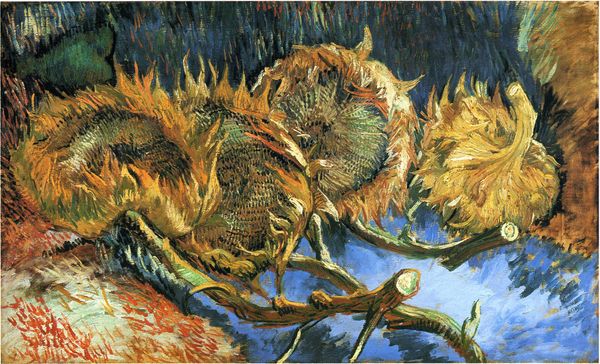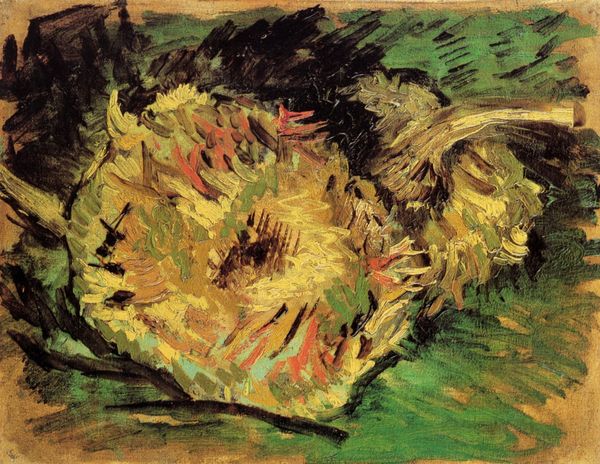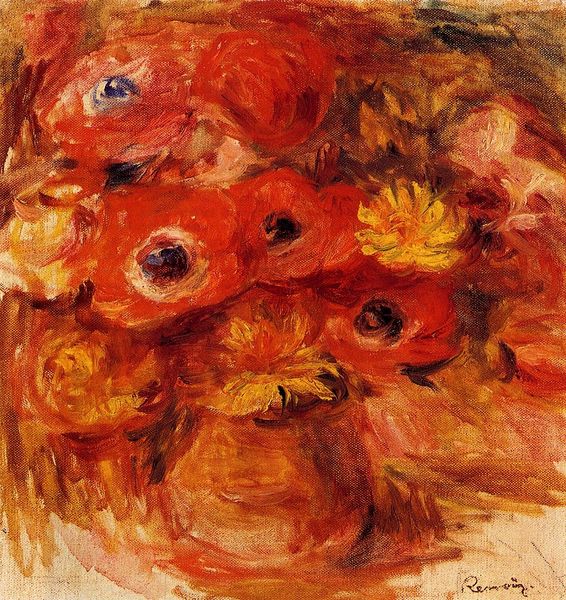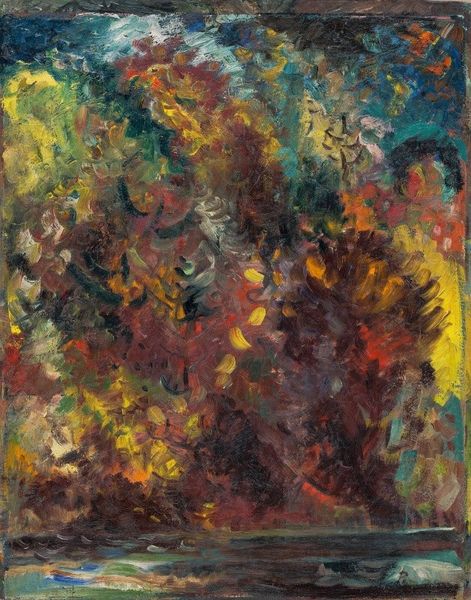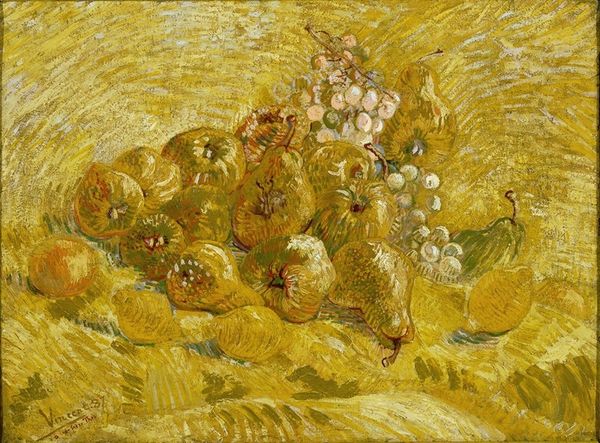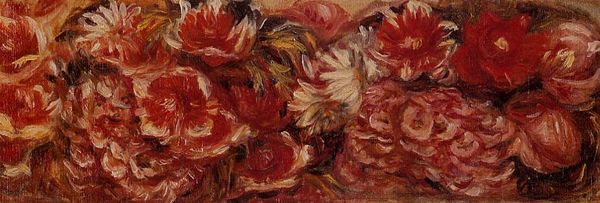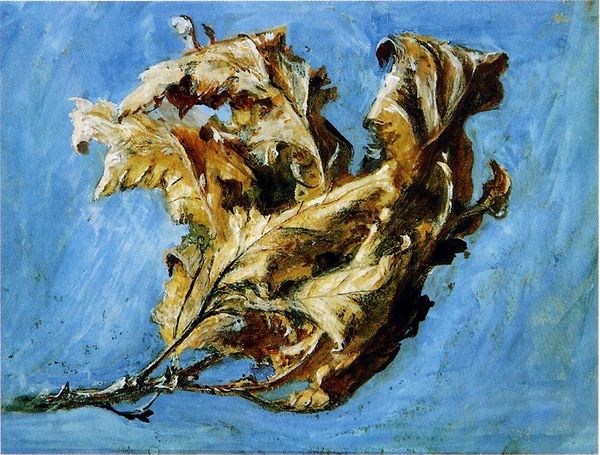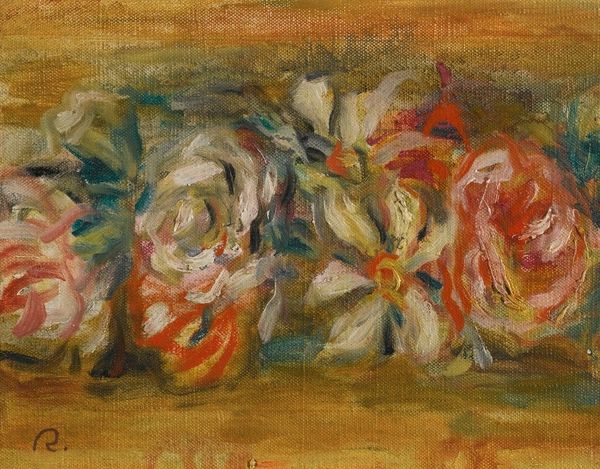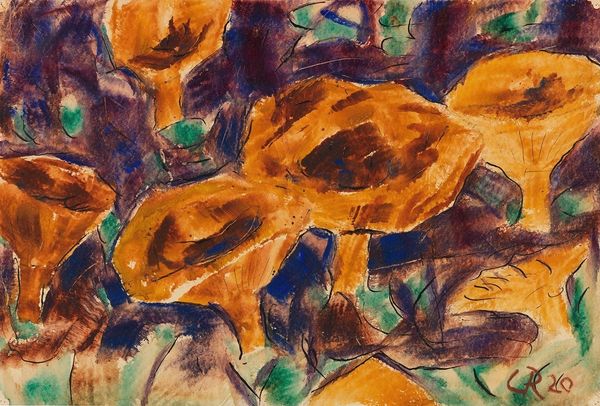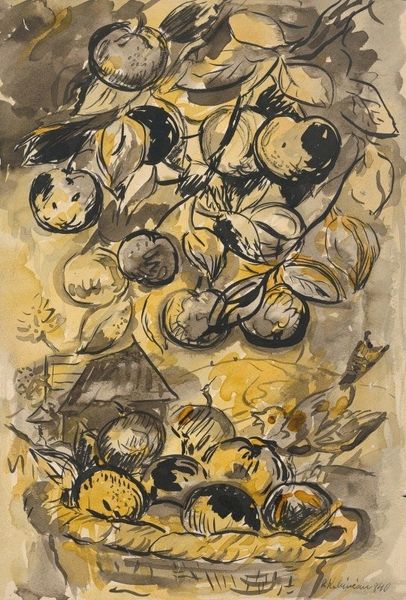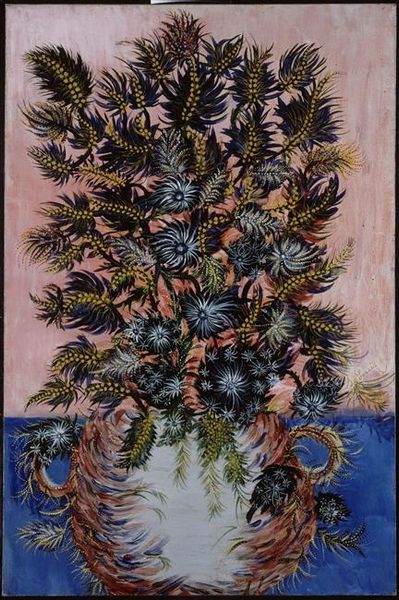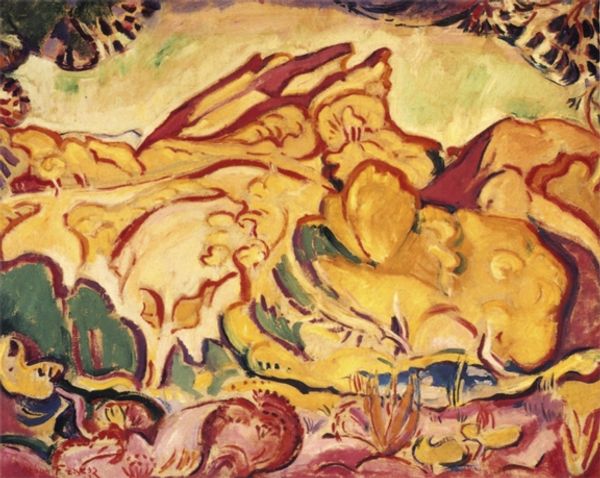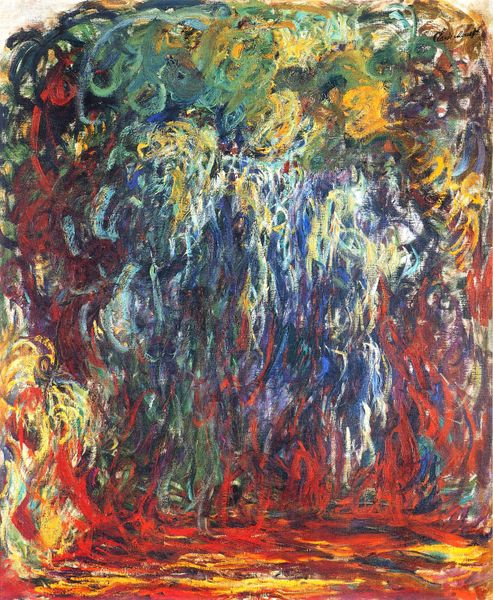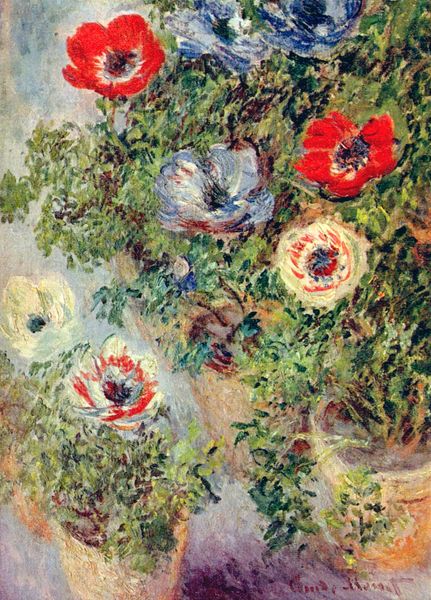
painting, oil-paint, impasto
#
painting
#
oil-paint
#
flower
#
impressionist landscape
#
impasto
#
vanitas
#
plant
#
post-impressionism
Dimensions: 60 x 50 cm
Copyright: Public domain
Editor: Here we have Van Gogh’s "Still Life with Two Sunflowers," painted in 1887 with oil paints. There’s something melancholic about these sunflowers, so withered and heavy. What do you make of the composition and the materiality in this painting? Curator: The heavy impasto, a defining element, certainly contributes to that somber affect you describe. Look how Van Gogh layers and manipulates the paint, building up the surface to emphasize the sunflowers’ textures – the decaying petals, the rough seed heads. Editor: Yes, I noticed that. It gives the painting a very tactile quality. Curator: Exactly. Consider the composition too. The close-up view and shallow depth compress the forms, pushing them towards the picture plane. What effect does this have, do you think? Editor: It feels almost claustrophobic, emphasizing the weight and mass of the flowers. It also forces you to focus on the details, like the brushstrokes and color variations within each flower. Curator: Precisely. The earth tones dominate, but notice the subtle use of color. Minute flecks of green, brown, orange...They contribute to a visual complexity and prevent it from becoming monotonous. It asks us to look at the intricate details. Editor: That’s interesting. I had overlooked those nuances amidst the broader tonal palette. Curator: Through meticulous visual analysis and observation, one finds a wealth of artistic strategies in van Gogh’s still life painting. The decaying flowers aren't simply an object, but the perfect structure for investigating color, texture and composition. Editor: I will definitely look closer next time to consider Van Gogh's techniques! Thank you.
Comments
No comments
Be the first to comment and join the conversation on the ultimate creative platform.
